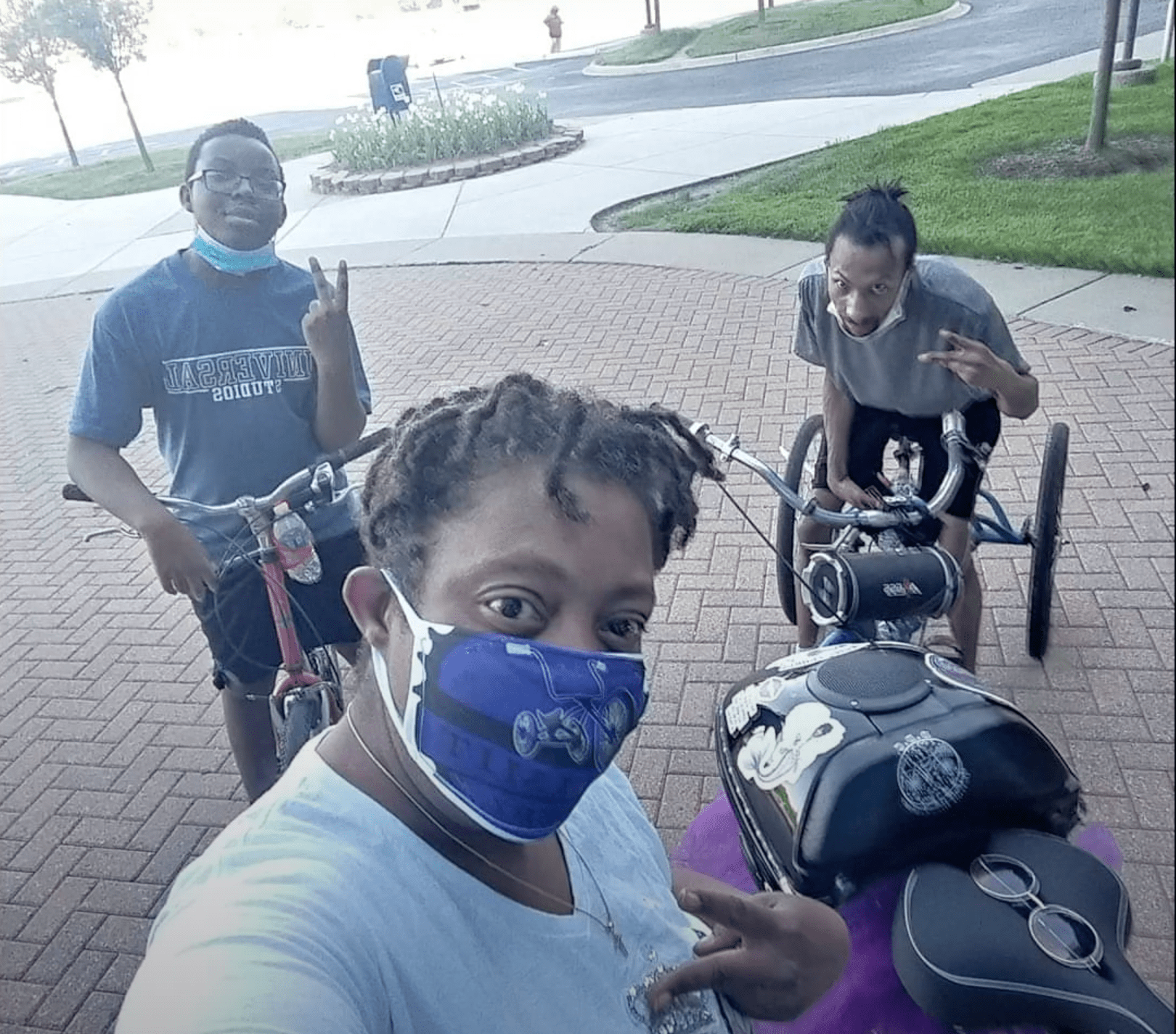On the 30th anniversary of the passage of the Americans with Disabilities Act, one disability-rights organization is highlighting the importance of an under-discussed mobility assistive device on which countless disabled Americans rely: the humble bicycle.
In the new video "Disabled People Ride Bikes (and Trikes, and Tandems and Recumbents)!", a team of disabled filmmakers at the Seattle-based nonprofit Rooted in Rights showcased a range of differently abled people who choose sustainable two- and three-wheeled vehicles to get around — without relying on cars, which don't always meet their needs or bring them the same independence and joy.
"I don't think that people realize just how freeing [bikes are], and how much independence disabled people can get through biking," said Maria Town, a Washington, D.C., woman who has cerebral palsy. "I got my first trike when I was 12, and it opened the world to me."
One in four Americans live with a physical, psychiatric, emotional, intellectual, sensory, or other disability — and every disability can affect mobility needs.
You can watch the full video below; a transcript with image descriptions is available here.
The video originally began as a commission for the National Association of City Transportation Officials, but the group expanded the scope of the project after an outpouring of interests from cyclists with disabilities who were eager to tell their stories.
"So many people reached out to me when we announced this collaboration on Twitter — including people who I had worked with for years, who I had no idea rode bikes," said Anna Zivarts, Rooted in Rights' program director. "But it wasn't totally surprising. I have low vision myself, and I've never been able to drive, but I can bike. And like a lot of people with disabilities, I'm conscious of the fact that the needs of our community is used pretty often to advance the priorities of people who drive."
Like all vulnerable road users, bikers and trikers with different mobility needs often have a tough time on roads designed for drivers — facing challenges that many abled cyclists may never encounter. Interviewees highlighted the high cost of adaptive and electric-assist cycles, a lack of secure biking storage near transit stops that can lead to theft of hard-to-replace vehicles, high rates of police brutality against Black, Indigenous and other disabled people of color, and a lack of protected infrastructure designed for the needs of non-normative bodies.
"Biking is very popular in the deaf community, but many deaf people don't feel safe sharing the street with cars," said Matthew Sampson, a disability-rights advocate in Washington, D.C. "Hearing people rely on sound to help them, but deaf people don't have that option. How do we make it safer for deaf people to bike? That. Protected bike infrastructure."
But Rooted in Rights also emphasizes the strength, joy, and pride that disabled cyclists get from riding — and the importance of battling the pervasive assumption that most disabled people can't get around without a car, while also working to make the mode more broadly accessible to more people with disabilities. That's especially true for those people with disabilities for whom bicycling is even safer than getting behind the wheel — including many people with mental illnesses.
"Riding a bicycle is the safest option for me if I'm going through an intense manic phase due to my Bipolar disorder," said Camille Patrice Dickens, a Columbus, Ohio, advocate. "I think exercise is very important for anyone who is disabled, especially if you have a mental illness."
But even disabled people who choose to bike for fun rather than for basic mobility deserve access to the tools they need for riding — not just safe streets, but also subsidized vehicles that meet their needs, secure storage, and a culture that views the safety of disabled people in transportation as essential, rather than an afterthought. As the Americans with Disabilities Act enters its fourth decade, it is past time to push for even better legislative, cultural, and design changes that put the needs of Americans with disabilities front and center — as well as centering their joy.
"Me and my bike get down together, we have fun," laughed Damon Colton, who was also interviewed in the video. "People [with disabilities] can do anything that we want to do. And if we want to ride bikes, we can do it, so don't judge."






